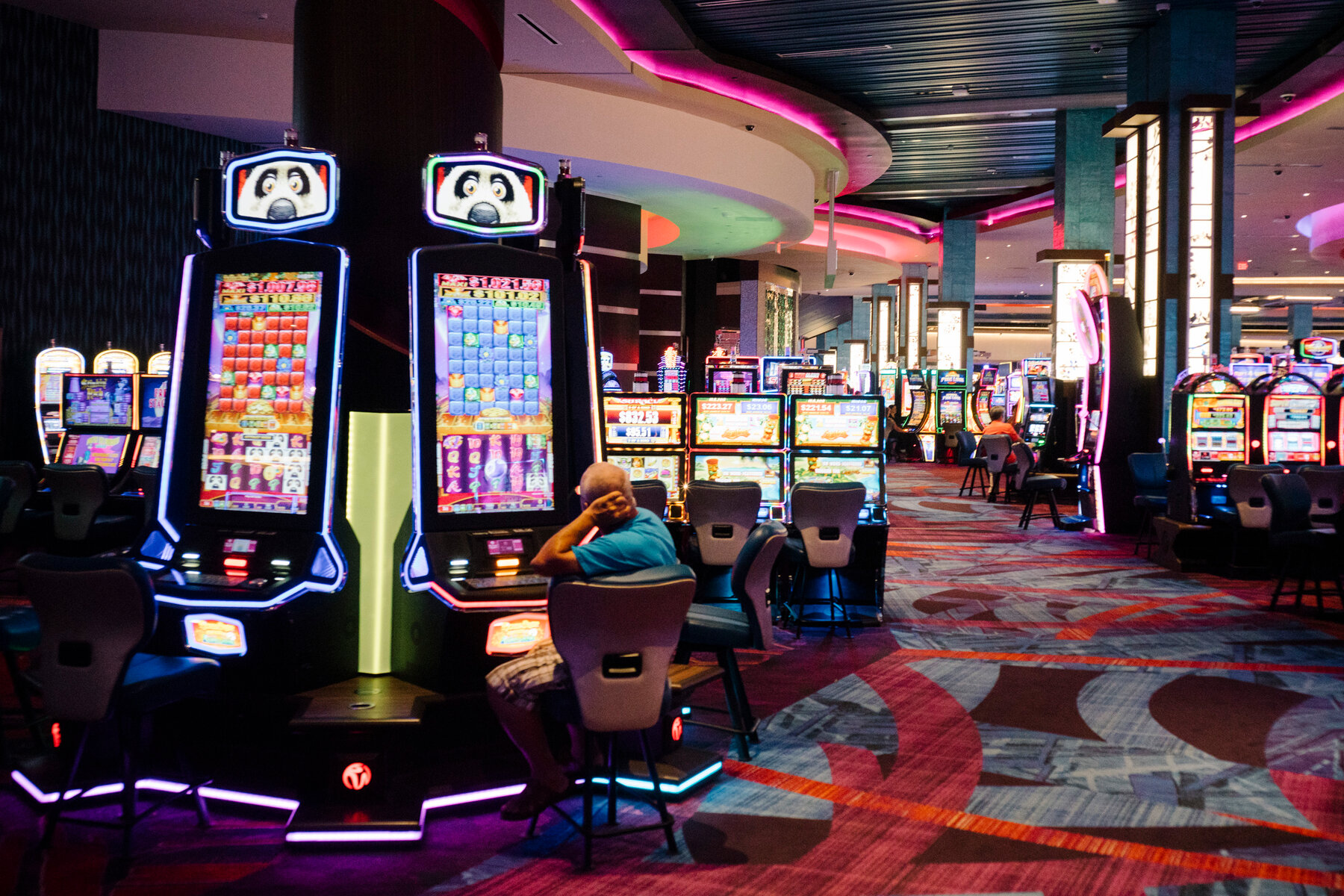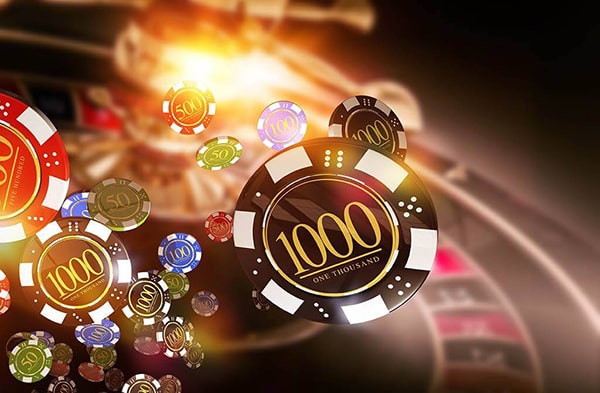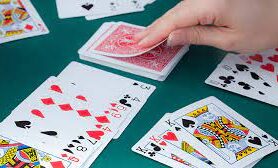Casino myths in a fact check

In thousands of years of gaming history, facts around the world have always been mixed with gaming myths: from two dice found in an Egyptian tomb from 3000 BC, to gambling on the streets of ancient Rome, to Chinese card games from the 10th century.
Just like gambling itself, which has evolved enormously through modern technologies and online casinos, casino myths and absurd theories have also taken a new direction over time. The combination of luck and skill gives gambling a mysterious aura and provides a stage for many gambling beliefs. Some of them correspond roughly to reality, while others spring from mere fantasy.
Many gambling myths surround casinos and how they cheat their players out of their money. Some of these legends reveal supposed tricks to fight back and thus increase one’s chances of winning. What most of them leave out, however, is that the payout odds depend on nothing other than the RNG (Random Number Generator), i.e. the game’s random number generator, which is strictly controlled by independent testing bodies and in most cases even advertised by the casinos.
In this guide, we take a closer look at many of these gambling myths and highlight the difference between rumours and facts. Our listing includes the most common myths about slot machines, both the local machines and the software in online casinos, as well as superstitions about table games, croupiers and players.
Table of Contents

1. Casino games are rigged
This is one of the most famous casino myths, which is based on a true incident, but like many other rumours on our list, is not entirely factual. Like any other business, casino operators need to make money in the long run and this is done by means of house advantage. To achieve this house edge, all games of chance are statistically designed to bring in more money for the casino than is paid out to players over time. But that doesn’t mean you can’t win or that the odds are completely against you.
You are just one of thousands, if not millions, of players that the casino makes money from over time. So, contrary to what the casino myth would have you believe, you are never a loser from the start. Every casino game has a random number generator (RNG for short), which is tested by casinos and game developers in billions of game rounds. This guarantees a reliable indication of the average payout rate and ensures that all players have the same chances of winning.
These RNGs are constantly checked by independent testing laboratories, which are responsible for regulating land-based casinos as well as online providers. So forget the conspiracy myths and play responsibly instead. You will find that sometimes you win and sometimes you lose. That’s just how the game goes!
2. Card counting is prohibited
Let us first clarify the legal requirements: Card counting is not forbidden and you cannot end up in jail if you count cards in a casino. However, casinos obviously don’t like it when you count the cards at their table – simply because this is how you use your skills to increase your chances of winning and thus reduce the house advantage in your favour.
So if you are caught counting cards, you will probably be asked to leave. The casino will also notify other casinos of your misconduct so they can ban you as well. But casinos cannot take any legal action or take you to court for this. Strangely enough, in this case, many casinos try to blur the lines between belief and fact so that players think that the law is in their casinos’ favour on this issue, but in practice this is often not the case!
3. If a slot machine has not paid out anything for a long time, a big win is on the horizon
A slot machine has no thoughts or feelings. So a slot machine cannot know that it has not paid out a win for hours and therefore cannot feel obliged to do so. In fact, modern slot machines use a random number generator that creates a new combination on each spin.
Thus, each spin is a random event. So there is no guarantee that pulling the lever again or pressing the “spin” button will bring you closer to winning. So now you know that wins or losses do not result from a personal decision. So you don’t need to regret losses and be envious of other players who win on a slot machine you just left.
4. Casinos pump extra oxygen into the hall to keep you energised
The next myth is a widespread legend that originated in Las Vegas casinos. Some vivid imaginations go even further, so that people claim that casino operators enrich the air in their casinos with pheromones. This is supposed to encourage players to bet more “aggressively” and thus place higher stakes. For most people, all this probably sounds rather far-fetched, but some use this casino myth as an explanation for why they would prefer to keep playing – even when they have no more money to gamble. However, this is more due to adrenaline.
We also dispel another myth: The idea that having more oxygen in the room will make you feel less tired is not based on scientific fact. Nor is there any conclusive evidence that more oxygen affects your gaming habits in any way. If you’re still not convinced, you should also know that tampering with the air supply is illegal in both the US and Europe. Pumping oxygen or other substances into the air would therefore be an extremely risky business for casinos.

5. Experienced croupiers can decide when to stop the roulette wheel to avoid big payouts
Casino employees who secretly cheat you out of your winnings are part of another myth. It is natural to assume that a croupier operating the roulette table can also cheat. However, there are far too many random factors that influence the outcome in the roulette wheel for the dealer to have any influence on the result.
The ball and wheel move in opposite directions and the ball also bounces off the rails, so it is probably impossible to imagine any training that would enable a dealer to control all these elements and place the ball on the desired number every time.
If a croupier is caught cheating, the penalty to the casino is enormous compared to the small amount a cheating dealer can win. And if this is not enough to invalidate this gambling legend, then perhaps the fact that any cheating scheme can work both ways: Since mere chance preserves the house advantage in many games, it is not in the casino’s interest to introduce predictability.
6. You are more likely to win on slot machines in a busy casino
There are actually two explanations for why this is just a legend and not a fact. Technically, it is true that there are more jackpot payouts, larger prize pools and more winnings in a busy casino than in a quiet casino. However, this is only true because more games are played at certain times. As a single player, however, your chances remain the same whether you are one of hundreds or the only person playing at the casino.
A great way to combine the best of both worlds is to play at an online casino. There you can play from the comfort of your home. The best online slot games offer massive jackpots (sometimes bigger than those of land-based casinos) because they are filled with thousands of players at any given time. Since all the players are online, this means you don’t have to worry about noise or other distractions!
7. Online gambling is the reason for more and more underage players
One of the biggest challenges for online casinos is to prevent minors from taking advantage of the respective offers. Because players do not have to visit the casino in person, this myth states that it is easier for minors to gamble online.
To banish this potential danger, online casinos have strict regulations. The identity of players must be verified and all player accounts must be monitored by the operator. All this makes it very difficult, if not impossible, for minors to access casino websites. While no system is ever completely flawless, online casinos spend millions of euros on optimising processes and age verification technologies. Therefore, underage gambling is a much smaller problem than some media reports suggest.
8. All casino games are pure luck
Luck always plays a big part in gambling – as the name suggests. But the belief that all games depend only on luck is not entirely correct. Casino games are in fact roughly divided into two categories of games: the “soft” ones, which are mainly based on luck, and those that require skill. In the latter, players can use their skills to influence the outcome of the game to some extent.
Slot machines and bingo, for example, are classified as soft games because there is very little the player can do to influence the outcome of a spin or the numbers called. However, because players can develop and use their skills to count cards in blackjack, for example, or apply strategy in Texas Hold’em poker, table games are considered games of skill. However, this gambling myth is not completely false: even if these games are not based on “pure” luck, probabilities and luck play a major role in all casino games, even in those that are considered games of skill.
9. Other players influence the outcome of your game
In addition to the misconception that you can control the outcome of your own game, there is a casino myth that states that other players can influence the outcome in their favour. However, as we have already explained, this is impossible. Since the games are regulated by the random number generator, all results are random and absolutely independent of each other.
Every spin of the roulette and slot machine as well as every roll of the dice is random. This means that they are, of course, also completely independent of the spins of other players. If you are still bothered by this myth, why not try out an online casino? When you start your private, encrypted session, you can really concentrate fully on your own game.
10. The most payout-friendly slot machines are located at the aisles
It is believed that casinos used to encourage players to spin the reels on their slot machines. Therefore, they are said to have put the “looser” slot machines more in view in order to attract passing players in this way. And so another myth about slot machines was born.
Although different slot machines have slightly different payout ratios, realistically it is completely impossible to find slot machines that pay out more in the long run. You should also consider factors such as volatility, frequency of wins and stakes. For example, if you play a progressive slot machine with a huge jackpot, you can theoretically win hundreds of millions, but the actual chances of winning are rather small.
11. The start button generates less winnings than pulling the slot machine handle.
Many slot machines in real casinos offer the option of starting the reels by pulling the lever or pressing the start button. According to this myth about slot machines, pulling the good old handle gives you better chances of winning than pressing the start button. However, as we explained earlier in separating gambling myths from facts, slot machines do not have any knowledge of their own and therefore cannot make such decisions.
The slot machine does not know at all whether you press the button or pull the handle, and consequently cannot know whether you want to get better or worse spins. This rumour therefore makes no sense and is therefore based on pure superstition. If you are still not convinced, then play in an online casino where online slots never have a physical handle – so this problem is solved!
12. You have to bet more or the maximum amount to win
There is a grain of truth in this myth about slot games. Some slot machines will pay out larger winnings at better odds if the amount bet on the spin was the maximum allowed bet (or at least larger than the minimum). Nevertheless, the average payout ratio (also called RTP for Return to Player) is usually in the range of 92% to 95%. This means that you will only notice the difference if you win big, but not very often. In the meantime, you have to play a lot more, but you also increase the risk of losing your money.
Slot players assume that, especially with progressive jackpots, strategies can be applied with which higher stakes overall can lead to better results. However, these theories cannot be proven conclusively.
13. Online casinos are illegal scams
Like everywhere else on the internet, you should be very careful when looking for an online casino. Although there are some casinos without licences that are operated illegally, the majority of online casinos offer their own gambling games completely legally. Authorities such as the UK Gambling Commission (UKGC) in the UK regulate these providers heavily. The Malta Gaming Authority (MGA) and the Gibraltar Gambling Commissioner are primarily responsible for the control of online casinos in the EU.
All online casinos operating in the EU must have a valid licence and are regularly tested and audited. The licence requires that casinos act in accordance with the authorities’ requirements in all areas, including the random number generator, responsible gambling guidelines, KYC (customer identity verification) procedures and all other areas of social responsibility and customer protection.
Summary
Gambling myths are mostly based solely on superstition. In this article, we have tried to debunk some casino myths by simply checking the obvious facts. However, legends about casinos manipulating players’ odds or their own casino games with cheating croupiers sometimes supersede common sense – especially for players who have just had a lot of bad luck at the game. So if you have a run of bad luck, it’s best to just leave the casino and not fall for conspiracy myths. This will make it easier for you to take advantage of your new winning opportunities next time and be more successful.
While we have now debunked some of these myths, it’s also important to remember that gambling is based primarily on luck, whether you are playing a pure game of chance or can improve your chances of winning with the right skills. So always play within your limits, don’t risk too much and take a break when you notice that luck is leaving you.
FAQ about Casino myths in a fact check
Is it true that casinos can manipulate the outcome of slot machines?
No, it is not valid. Slot machines use random number generators (RNGs) to determine the outcome of each spin, and independent third-party organizations regularly audit these RNGs to ensure fairness. Casinos have no control over the outcome of slot machines, and any suggestion otherwise is a myth.
Do casinos pump oxygen into the air to keep players awake and gambling?
No, this is a myth. Casinos are required by law to maintain safe and healthy air quality, and pumping extra oxygen into the air would violate these regulations. Additionally, no scientific evidence supports the claim that extra oxygen keeps people awake or gambling.
Can card counting give you an edge in blackjack?
Card counting can give skilled players an edge in blackjack, but it is not a guaranteed way to win. Card counting involves keeping track of the cards played to estimate the likelihood of certain cards being dealt with in the future. While it is legal, casinos can and often do take steps to prevent card counting, such as using multiple decks and shuffling more frequently.
Is it true that casinos pump oxygen into the air to keep players awake and gambling?
No, this myth is perpetuated in movies and television shows but is not based on reality. No evidence suggests that casinos pump oxygen into the air to keep players awake and gambling. Doing so would be illegal and potentially harm the health of casino patrons.
Do slot machines pay out more at certain times of the day or night?
No, slot machines operate on a random number generator (RNG) system that ensures every spin is independent and has an equal chance of winning. There is no time of day or night when slot machines are more likely to pay out. Any perceived patterns or hot streaks are purely coincidental.



